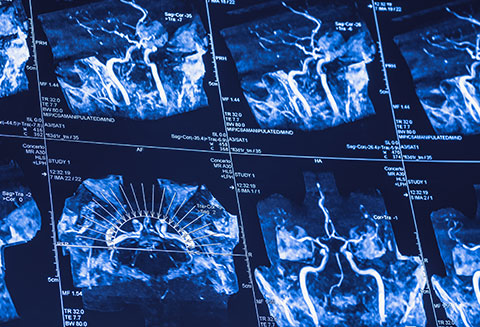The Importance of Talking about Mental Illness

The human psyche is a fragile thing, and just like the body, it is subject to a host of maladies. There is plenty of evidence to suggest that mental disorders are quite common, affecting one in five adults in any given year. And across the population, approximately 1 in every 25 adults is living with a serious mental health problem such as schizophrenia, bipolar disorder, or major depression.
More articles from this issue
“Mental illnesses are serious, but they’re not an indication of a person’s inherent character or intelligence,” says Mr. Scott Trefny, MA LMHC, senior rehabilitation therapist at NewYork-Presbyterian Hospital Westchester Behavioral Health Center in White Plains. “What’s more, an individual affected with a mental disorder may not want to keep it a secret despite the fear of being stigmatized. It’s not possible simply to ‘will yourself better.’ What’s most important is to acknowledge your need for help and seek treatment by a qualified mental health professional. It can also be important to tell family and others you trust in your life about your mental disorder. Receiving helpful assistance and part of successful rehabilitation entails receiving much-needed encouragement and support.”
Talk as a therapeutic tool was originally invented in the late 1880s by Sigmund Freud, known as the father of psychoanalysis. “There is a sense of empowerment that can take place when sharing with friends and family members, who can be sympathetic to your problem,” says Mr. Trefny. “They can help reduce your stress and sense of isolation, and improve your mood. You may want to reach out to them for concrete support — like help finding treatment or rides to appointments. You might just want their support and acceptance. Oftentimes, the best support comes by asking for the specific types of help you need.”
Symptoms that may be warning signs
- Excessive worrying or feeling sad for more than two weeks
- Confused thinking or problems concentrating
- Extreme mood changes
- Irritability or anger
- Avoiding friends and social activities
- Difficulties understanding or relating to other people
- Changes in sleeping habits
- Difficulty perceiving reality (delusions or hallucinations)
- Abuse of substances like alcohol or drugs
- Multiple physical ailments without obvious causes
- Thinking about suicide
- Inability to handle daily activities
You may have anxiety about reaching out to friends or family for fear of being judged, but that’s where support groups can be useful. They can help you understand your own experiences through hearing the stories of others. This support can also provide you with insights and tips for handling the personal relationships in your own life.
Adds Mr. Trefny, “There are also peer specialists who have been through many acute episodes of their own mental illness. Hearing their stories of recovery and their fight to stamp out stigma can often be the spark that someone needs to get help and start to believe that they will be well again. Based on patient feedback at NewYork-Presbyterian, one thing we often hear is that a person’s sense of hope is improved after attending a peer led group. This makes peer specialists a vital part of our program.”
Professional relationships might have to be handled differently. “At work, you have to weigh the advantages against the disadvantages of being open,” explains Mr. Trefny. “Consider the potential negative impact — like stigma from coworkers because of your need for special accommodations — but those accommodations are part of your civil rights and are covered in the American Disabilities Act. Despite legal protections, people must make an informative, thoughtful decision regarding what to share about themselves at work.”
Foremost, however, is to seek treatment from a mental health professional who can create an individualized treatment plan based upon your mental condition. The plan may include medications, individual, and group therapies. Says Mr. Trefny, “By telling the right people and suggesting ways for them to help, you can start building a strong support network which can go a long way in aiding your rehabilitation.”
Join us!
NAMI Speaker Series: In Our Own Voice
Tuesday, May 14, 6:00 pm
Presented by: National Alliance on Mental Illness
Please join us for a community lecture featuring a speaker from NAMI Westchester discussing his own personal journey of recovery. No reservation required, Call 914-997-5779 for more information.
Location:
NewYork-Presbyterian Westchester Behavioral Health Center
21 Bloomingdale Road
White Plains, NY
To find a physician visit nyp.org/psychiatry or call 877-697-9355.





